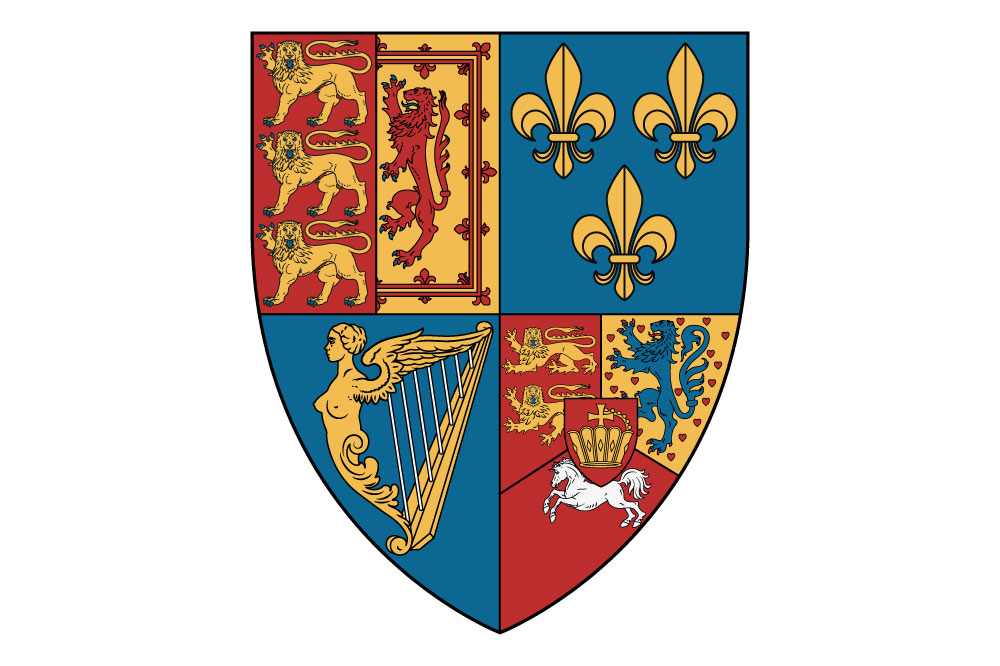The House of Hanover: British Monarchy and Hanoverian Legacy

House of Hanover - 1714 to 1901
Origins and Rise to Power:
The House of Hanover traces its roots to the marriage of George, Duke of Brunswick-Lüneburg, and Princess Sophia of the Palatinate in the early 17th century. Sophia's Protestant lineage made her a strong contender for the English throne, and her descendants would eventually secure the crown. It was Sophia's great-grandson, George Louis, who became the first Hanoverian monarch of England as King George I.
The early years of Hanoverian rule were marked by a degree of controversy and political tension. As a German dynasty, the Hanoverians faced challenges in establishing their legitimacy and winning the support of the English people. The Jacobite Rebellion of 1715, led by supporters of the exiled Stuart dynasty, posed a significant threat to the Hanoverian succession, but it was ultimately suppressed, solidifying the Hanoverians' hold on power.
Parliamentary Rule:
Under the rule of the Hanoverians, England experienced significant political and constitutional developments. The reign of King George I and his son, George II, saw the rise of the modern party system, with the Whigs and Tories emerging as the dominant political factions. This period also witnessed the gradual shift of power from the monarchy to Parliament, as the Hanoverian kings relied heavily on their prime ministers and cabinet ministers to govern.
However, the reign of George III was also marred by political and colonial challenges. The American Revolution, sparked by grievances against British rule, resulted in the loss of the Thirteen Colonies and the birth of the United States of America. This event, along with the Napoleonic Wars in Europe, put significant strain on the British economy and raised questions about the Hanoverian monarchy's ability to govern effectively.
The Madness of King George:
The House of Hanover faced a series of personal and political crises during the 19th century. King George III's mental illness and the subsequent regency of his son, George IV, created a period of instability. The reign of George IV was marked by scandals and controversies, although his successor, William IV, provided a more stable rule.
Victorian Era:
The Victorian era, which began with the reign of Queen Victoria in 1837, marked a resurgence of the Hanoverian monarchy's popularity and influence. Queen Victoria's long reign, spanning over six decades, witnessed remarkable social, economic, and technological changes in Britain. The Industrial Revolution transformed the nation, and the British Empire reached its zenith, becoming the largest empire in history.
The House of Hanover reached its end with the death of Queen Victoria in 1901. As she had no surviving legitimate children, her eldest son, Edward VII, succeeded her on the throne. Edward VII belonged to the House of Saxe-Coburg and Gotha, a German branch of the Hanoverian dynasty. However, due to anti-German sentiment during World War I, the royal family changed its name to the House of Windsor in 1917.
Legacy and Contributions:
The legacy and contribution of the House of Hanover to England and the United Kingdom are vast and enduring. The Hanoverians played a crucial role in shaping the political, social, and cultural landscape of the nation. Under their rule, England witnessed significant political developments, such as the establishment of the modern party system and the gradual shift of power from the monarchy to Parliament. This laid the foundation for the constitutional monarchy that continues to govern the country today.
Moreover, the House of Hanover presided over a period of colonial expansion and the rise of the British Empire. Through exploration, conquest, and trade, the empire grew to encompass vast territories around the globe, including North America, India, and parts of Africa. The Hanoverians played a central role in these endeavors, promoting exploration and trade while consolidating British control over these territories. Their imperial ambitions transformed Britain into a dominant global power, influencing the political and economic course of world history.
The Hanoverian era also witnessed significant cultural and intellectual developments. The Enlightenment, with its emphasis on reason, science, and progress, flourished during this time. The Hanoverian monarchs, particularly George III and George IV, patronized the arts, sciences, and literature, fostering a cultural renaissance in England. This era saw the rise of notable figures such as Samuel Johnson, Alexander Pope, and Jane Austen, whose works continue to be celebrated for their enduring literary value.
Furthermore, the House of Hanover's influence can be seen in the governance and constitutional framework of the United Kingdom. Their reign contributed to the gradual evolution of a constitutional monarchy, where the monarch's powers are limited and balanced by parliamentary authority. The constitutional reforms initiated during the Hanoverian era laid the groundwork for the democratic system that exists in the United Kingdom today.
Conclusion:
In conclusion, the House of Hanover left an indelible mark on the history of England and the development of the United Kingdom. Rising to power amidst political tensions and controversies, the Hanoverians navigated through challenges, establishing their legitimacy and securing their hold on the throne. Their reign witnessed significant political, social, and constitutional transformations, from the rise of the modern party system to the expansion of the British Empire. Despite facing setbacks such as the loss of the American colonies, the Hanoverians ultimately contributed to Britain's rise as a global power. While their reign came to an end with the dawn of the 20th century, their legacy lives on, shaping the constitutional monarchy and the rich history of the United Kingdom. The House of Hanover stands as a testament to the profound influence a royal dynasty can have on a nation's destiny.

